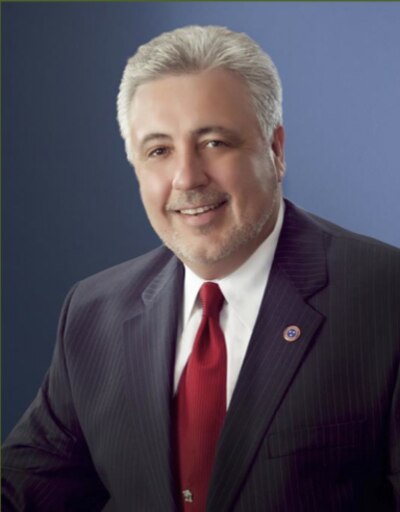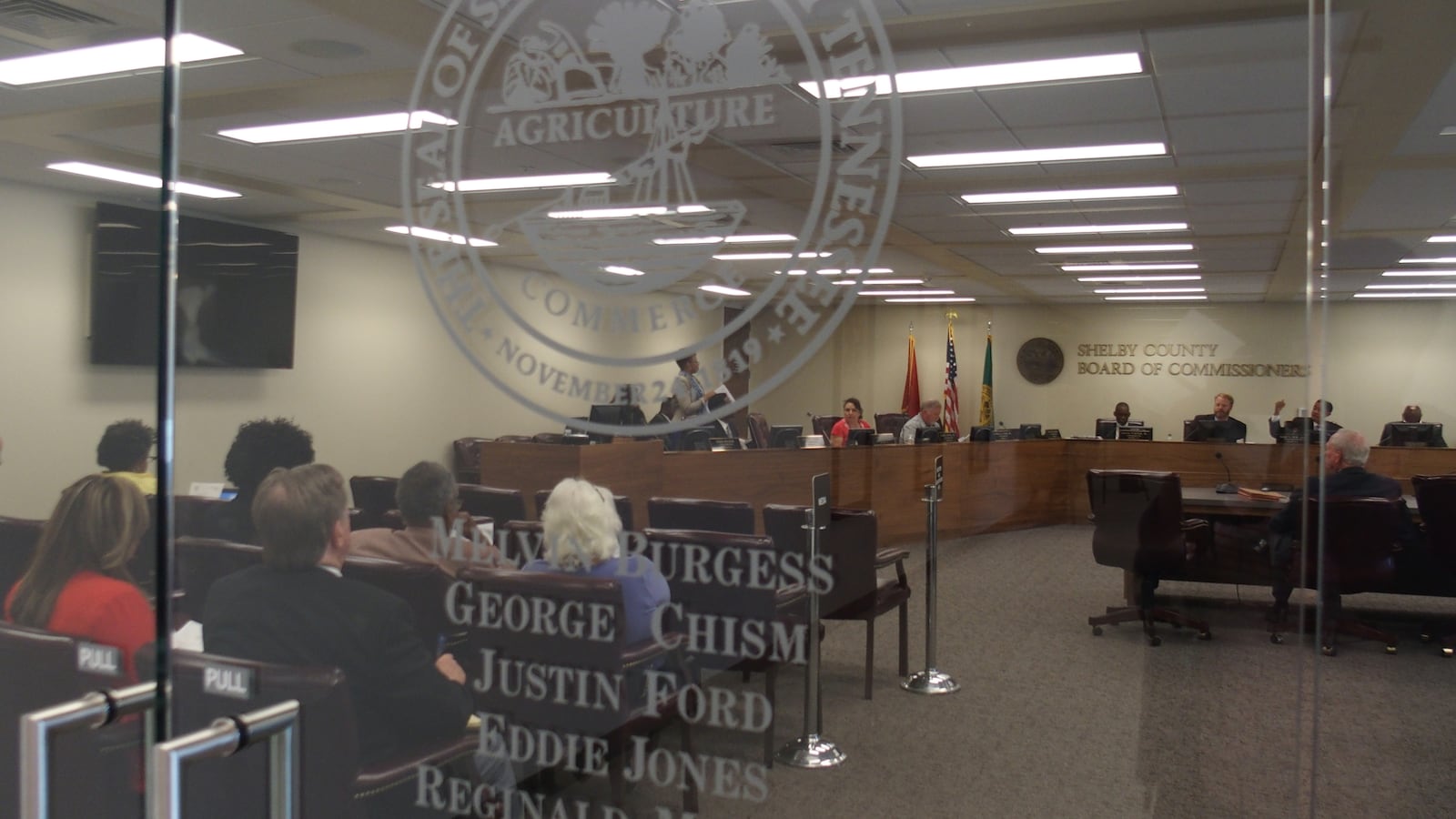Comparing Memphis city government to a “deadbeat parent,” the chairman of the Shelby County Commission joined other officials Wednesday in taking city leaders to task for Memphis’ minimal contribution to Shelby County Schools.
The comments came as officials with the county’s largest school district presented their $954 million spending plan for next year and asked for an additional $35 million from county coffers to close their remaining budget gap.
County commissioners, who hold the purse strings for Shelby County Schools, were coy about how much more they’d be willing to fund, while frequently rapping the City of Memphis, the funding source that has contributed only its obligation under a 2015 legal settlement.

Chairman Terry Roland took the first swing at city officials following Superintendent Dorsey Hopson’s presentation.
“They’re always pointing fingers at you, Dorsey. And they’re always pointing fingers at us on the County Commission. And the fingers that are pointing at us are from the ones across the alley over there that don’t want to take responsibility,” he said.
Roland went on to address equity concerns among the county’s seven school districts, of which Shelby County Schools is by far the largest and serves mostly children in Memphis. All six suburban municipalities help to fund their school systems.
“Those cities decided to pay more. The difference is the City of Memphis is not putting nothing in. Zero. So at the end of the day, we’re sitting up here with a task to do the very best we can,” Roland said. “That’s the difference between what the kids in the suburbs are getting versus the kids in the inner city.”
“Reminds me of being a deadbeat parent,” Roland added at one point.
Contacted later, city spokeswoman Ursula Madden said Memphis taxpayers also pay county taxes, which contribute to Shelby County Schools.
“The funding of Shelby County Schools is the responsibility of Shelby County government,” Madden said, adding that no additional money is designated for the urban school system.
The city is in the process of paying $41.8 million to the district in a funding settlement reached last year with Shelby County Schools. Under the agreement, the city paid the school district $8 million last year, then will contribute $1.3 million annually for the next 15 years. It also paid the district’s outstanding bond debt of $8 million and is providing police officers at schools through June 30, valued at about $2 million.
Hopson said he has urged the city to match $10 million in philanthropic investments in the Innovation Zone, the district’s prized school turnaround initiative that costs about $600,000 annually for each school to extend the school day and provide teacher and principal supports.
Roland said the city could help by passing a half-cent sales tax increase that voters rejected in 2013 that would have gone toward pre-K programs.
Commissioner Justin Ford said county and city elected bodies should come together to talk about school funding.
“The City of Memphis needs to contribute to education,” Ford said. “We have to work some way in unison to get that to happen.”
Commissioner David Reaves, who is also a former city school board member, criticized new Mayor Jim Strickland’s “brilliant at the basics” vision for city governance. “Education should be part of the basics,” Reaves said.
After the meeting, Hopson reiterated the commission’s sentiments about the lack of city funding.
“I share that frustration,” he said. “It’s hard to imagine a city that can truly reach its full potential if there’s no financial support for education.”
“The city made the decision to ‘to get out of the education funding business’ but there are things the city can do, particularly around supporting the iZone, supporting early childhood, supporting our teachers,” Hopson said. “We hope that they’ll consider taking those steps.”
The County Commission is scheduled to discuss the county budget June 1 and approve a budget June 6.

